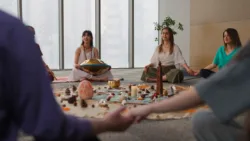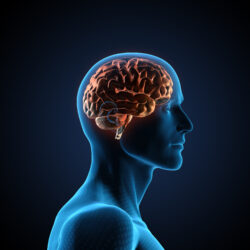Breaking Down What a Partial Hospitalization Program is

An alternative to full-time inpatient care, partial hospitalization programs (PHP) are typically Monday through Friday for approximately six hours per day, for a set number of weeks. Rather than going to work or attending school, a partial hospitalization program allows the patient to focus almost entirely on their recovery while still living at home in a familiar setting. This type of program emphasizes therapeutic treatments – both psychological and holistic – including:
- Yoga, meditation and mindfulness
- Cognitive-behavioral therapy
- Psychotherapy
- Art therapy
- Group and individual therapy sessions
- Psychoeducation
- Exercise
- Medication management
- Family workshops
All treatments are led by therapists, holistic experts and board-certified psychiatrists. Partial hospitalization programs provide the structure and stability that have been shown to be effective for mental health treatment.
What does a day in a PHP program look like?
On the first day of your partial hospitalization program, you will likely spend lots of time making introductions, answering questions and completing intake assessments so that you are appropriately placed into treatment activities. As you get into a groove, you will begin attending individual and group counseling sessions, motivation and skill-building exercises, and psychoeducation lessons to learn more about the science and sociology behind mental illness and mental health treatment.
You’ll have time for lunch or a snack, where you can choose to socialize with other program members or spend some time reflecting on your own.
For the remainder of the day, you may continue cognitive therapy sessions or perhaps switch to more holistic treatment approaches like yoga, meditation, breathing exercises and art therapy. Work with your provider on scheduling that both interests you and is beneficial to your recovery.
What can I expect from my partial hospitalization program, aside from the daily schedule?
Your program will be tailored to your treatment needs, and you can continue to work with your providers throughout the program if certain aspects are not as helpful as others. You will likely try treatment methods that are new to you, such as creative art therapy where you might explore how dance, music, acting, drawing, writing, painting, sculpting and other forms of expression can contribute towards your recovery.
Keep in mind, however, that not every day will be filled with dance and music. Through more clinical forms of therapy like psychotherapy and cognitive behavioral therapy, you will be tasked with confronting what brought you to the program in the first place. You will likely be more vulnerable than you ever have before about your mental health, but one of the goals of the program is to realize how beautiful of a thing this can be.
How can a partial hospitalization program help me make strides in my recovery?
Vulnerability naturally lends itself to openness and effective communication. You may have put off treatment because you were afraid to talk about it or had been judged in the past. A partial hospitalization program, where you will be supported and uplifted by others who have been in very similar situations, will provide you with the tools to be more confident, trusting, and hopeful in yourself as you begin your recovery journey.
What do I do when I leave my partial hospitalization program?
Your recovery doesn’t end the day you complete your partial hospitalization program. Depending on your provider’s assessment and how you feel your treatment went, you may continue with similarly involved treatment options such as an intensive outpatient program.
Whichever path you choose to move forward, know that you are not alone and you are free to choose the treatment plan that makes you feel the most comfortable and confident with your recovery.
Once you leave your program, you should start to feel more comfortable returning to parts of your daily routine, like succeeding in school or work, identifying and addressing unhealthy thinking or behavior, and developing and maintaining – and perhaps repairing – close interpersonal relationships. You will also, ideally, have developed coping skills for when the road to recovery is a little bumpy.
High Focus Centers PA specializes in partial hospitalization programs for both teens and adults to address their mental health concerns. Get in touch with one of our counselors today at 610-644-6464.








